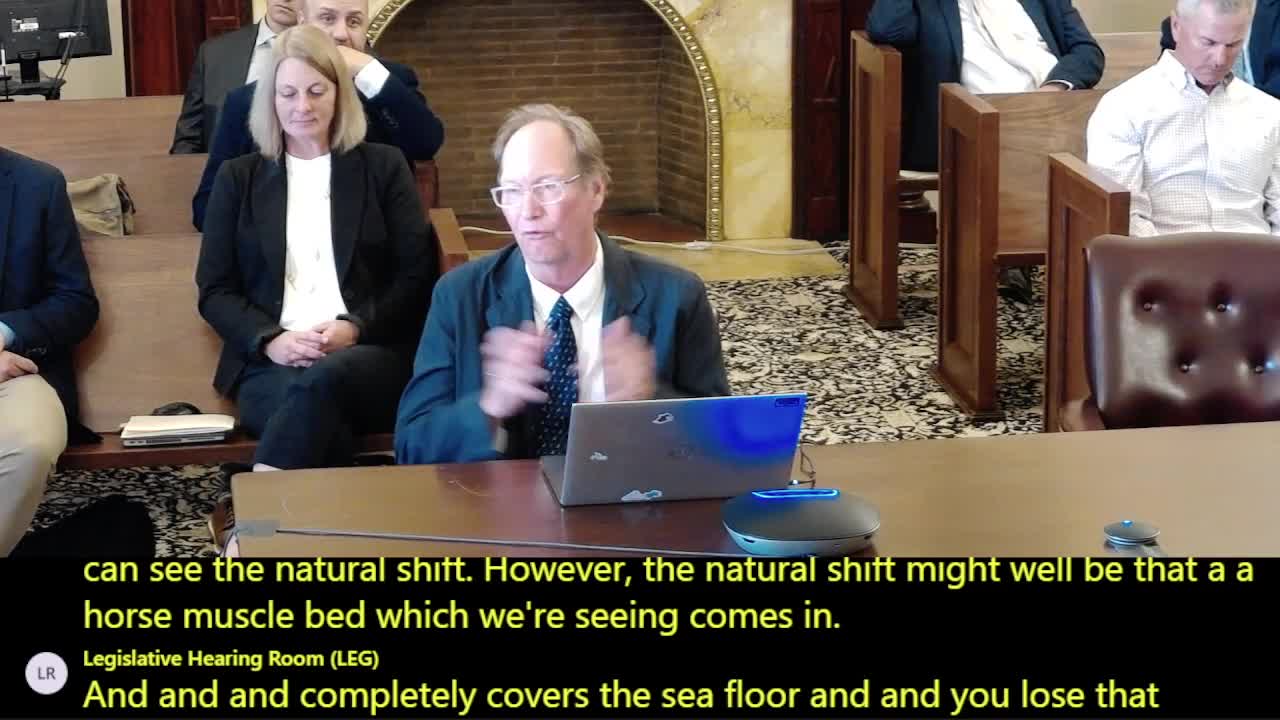Sustainable Scalloping Fund Advocates for Scientific Management and Economic Growth in Massachusetts
July 30, 2025 | 2025 Legislature MA, Massachusetts
This article was created by AI summarizing key points discussed. AI makes mistakes, so for full details and context, please refer to the video of the full meeting. Please report any errors so we can fix them. Report an error »

The Senate Committee on Post Audit and Oversight convened on July 30, 2025, to discuss critical issues surrounding the Massachusetts scallop fishery, focusing on sustainability, economic impact, and scientific research.
The meeting began with a presentation from a researcher who highlighted the success of a study conducted in Canada, where scallop populations rebounded significantly after a voluntary industry closure. This success story underscored the importance of habitat protection and monitoring in maintaining healthy scallop stocks. The researcher emphasized the need for increased video reconnaissance and surveillance in specific fishing areas to better understand population dynamics.
Committee members expressed concerns about the application of scientific research in fisheries management. One member noted frustrations with bureaucratic inertia that often hinders the implementation of convincing scientific findings. The researcher responded by detailing the extensive body of work produced by their team, including over 58 published papers, which have been recognized within the scientific community. However, they acknowledged ongoing challenges in influencing decision-making processes dominated by the Marine Fisheries Service.
Following this discussion, representatives from the Sustainable Scalloping Fund were introduced. Jeruman Kavich, the fund's attorney, outlined the organization’s mission to promote long-term stewardship and sustainable growth within the scallop fishery. He emphasized the economic significance of the scallop industry, which generated over $450 million in 2023 alone, supporting thousands of jobs across Massachusetts.
Kavich highlighted the scallop fishery's reputation as one of the best-managed fisheries globally, attributing this success to industry investments in scientific research and collaborative governance. He noted the establishment of the Sustainable Scalloping Fund, which aims to provide a stable platform for fisheries management and support critical research in the face of challenges such as climate change and regulatory uncertainty.
A key point of discussion was the potential reopening of the Northern Edge of Georges Bank, an area closed to scalloping for decades. Recent scientific surveys indicated that parts of this area could sustainably support scallop harvesting. Kavich urged the committee to consider reevaluating access to this region, advocating for a science-driven approach that balances environmental integrity with economic benefits.
The meeting concluded with a call for continued collaboration between the scalloping industry and state authorities to ensure the long-term health and sustainability of Massachusetts' scallop fishery. The committee's support for the Sustainable Scalloping Fund and its initiatives could play a pivotal role in shaping the future of this vital economic sector.
The meeting began with a presentation from a researcher who highlighted the success of a study conducted in Canada, where scallop populations rebounded significantly after a voluntary industry closure. This success story underscored the importance of habitat protection and monitoring in maintaining healthy scallop stocks. The researcher emphasized the need for increased video reconnaissance and surveillance in specific fishing areas to better understand population dynamics.
Committee members expressed concerns about the application of scientific research in fisheries management. One member noted frustrations with bureaucratic inertia that often hinders the implementation of convincing scientific findings. The researcher responded by detailing the extensive body of work produced by their team, including over 58 published papers, which have been recognized within the scientific community. However, they acknowledged ongoing challenges in influencing decision-making processes dominated by the Marine Fisheries Service.
Following this discussion, representatives from the Sustainable Scalloping Fund were introduced. Jeruman Kavich, the fund's attorney, outlined the organization’s mission to promote long-term stewardship and sustainable growth within the scallop fishery. He emphasized the economic significance of the scallop industry, which generated over $450 million in 2023 alone, supporting thousands of jobs across Massachusetts.
Kavich highlighted the scallop fishery's reputation as one of the best-managed fisheries globally, attributing this success to industry investments in scientific research and collaborative governance. He noted the establishment of the Sustainable Scalloping Fund, which aims to provide a stable platform for fisheries management and support critical research in the face of challenges such as climate change and regulatory uncertainty.
A key point of discussion was the potential reopening of the Northern Edge of Georges Bank, an area closed to scalloping for decades. Recent scientific surveys indicated that parts of this area could sustainably support scallop harvesting. Kavich urged the committee to consider reevaluating access to this region, advocating for a science-driven approach that balances environmental integrity with economic benefits.
The meeting concluded with a call for continued collaboration between the scalloping industry and state authorities to ensure the long-term health and sustainability of Massachusetts' scallop fishery. The committee's support for the Sustainable Scalloping Fund and its initiatives could play a pivotal role in shaping the future of this vital economic sector.
View full meeting
This article is based on a recent meeting—watch the full video and explore the complete transcript for deeper insights into the discussion.
View full meeting
